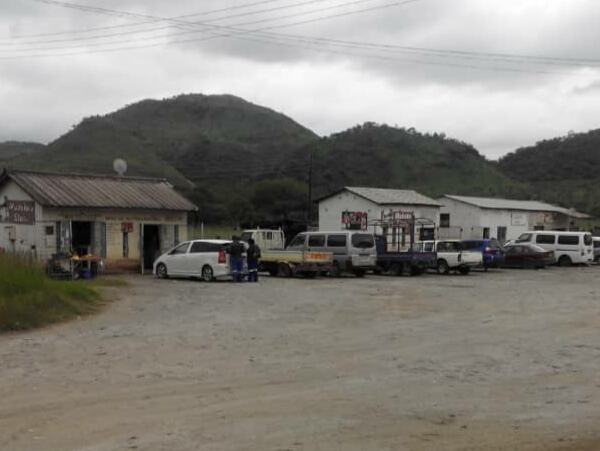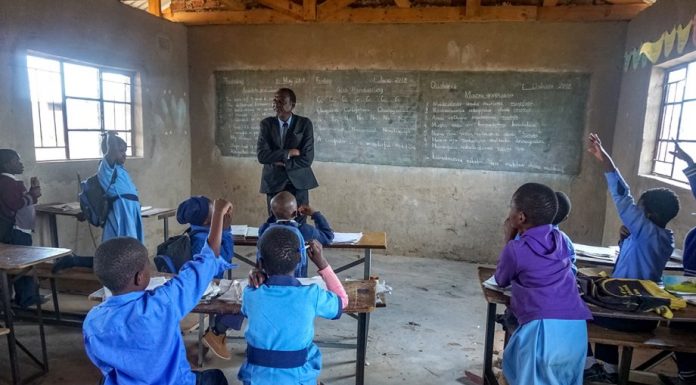Sydney Kawadza
Residents of the former mining town of Mutorashanga believe they have been under the subjugation of either mining companies or the farming dynasties that owned the vast tracts of land surrounding the area.
Firstly, the land surrounding the little mining area, was part of the Lone Cow Farm owned by Peter Mackenzie, a farmer who was into cash-crop production and cattle ranching.
During the period before the land reform, huge herds of cattle occupied the same to the West of the gigantic Great Dyke range which in contrast bore the fertile land good enough for crop production.
The writing was on the wall for the chrome mining town when global mining giant, Union Carbide, in 1992 pulled out of the venture in what many believed were depressed mineral prices on the world market.
Union Carbide, had by then, constructed new houses that even drew the attention of former President Mugabe who officially opened the houses that were for workers.
That was the last Mutorashanga saw any tangible construction work.
More than two decades later, people have been retrenched, others have had their houses destroyed for safety reasons and now, more than three quarters of the population is unemployed.
“We are surviving by the grace of God! It seems no one really cares about this place anymore. There are no meaningful commercial activities to sustain our lives,” a vendor at Chizhanje Centre, the de facto business centre.
A few people moved on to some plots created during the land reform programme.
“There are people who came from as far as Mt Darwin and occupied some areas which over the years we thought were paddocks for cattle.
“They grow tobacco and when the crop is fetching better prices on the market you see a lot of activities around but this has not been the case in the past two years,” a pirate taxi driver said.
The political leadership from Zvimba North has not been helpful.
“We have been unfortunate that the MPs who have been winning elections prefer Raffingora to Mutorashanga. For what reason, we don’t know,” Tadius Mikolo from Tafara 3 said.
However, the area’s problems are not lost to Ward 15 councillor Sandram Kembo who has been fighting tooth and nail in the Zvimba Rural District Council to have the area be declared a growth point.
“Government has introduced devolution and we believe some of the funds reserved for this should be used in developing areas like Mutorashanga,” he said.
Mutorashanga has close to 20 000 residents most whom work for small mining tributaries which sell their chrome to ZIMASCO.
Unfortunately, the miners get at most $300 per tonne of chrome.
“At most one produces three or so tonnes of chrome and from this we have to pay rent to the same people who are buying the chrome from us,” a local miner queried.
The miners get most of their requirements including dynamites, water pumps and other equipment leading to insufficient funds when they deliver their chrome.
ZIMASCO also increased rentals in all its high density suburb houses from $37 to $370 amid fears that they could go higher.
“We are in a quandary because even when you are working you do not get enough to sustain our lives here. It even gets worse when children have to go to school or there is illness in the family,” John Chinhuta, a miner said.
Councillor Kembo has been on a drive to push for the demarcation of commercial, residential and market stalls for the residents.
“We have approved site plans for all these stands but what we wanted first was the construction of market stalls for vendors to work from.
“These stalls will improve commercial activities especially for women in Mutorashanga some of who travel to Zambia, Mozambique and South Africa to buy goods for resale.
“If people get commercial stands, we believe this will also improve the service given to the people because at the moment no-one wants to invest in an unplanned area.”
The councilor said residential stands for residents would also help the area grow while giving residents options to build their own houses.
“Development of even growth is an anathema to this area because we have been stuck in the past where nothing has changed since the early 1990s,” he said.
Condemned by the fluctuating global prices for chrome, politicians who seem to have forsaken the area and economic challenges dogging Zimbabwe, the people of Mutorashanga have nowhere else to look for salvation.
They want their fate in their own hands and devolution could be key to the change in fortune for their area.









